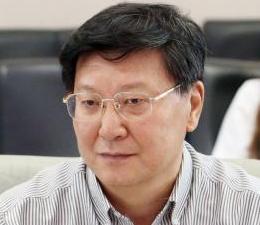President Donald Trump signed an "executive memorandum" to direct the U.S. Trade Representative Robert E. Lighthizer to determine "whether to investigate any of China's laws, policies, practices or actions, that may be unreasonable or discriminatory, and that may be harming American intellectual property, innovation or technology." Why is intellectual property (IP) in the Trump administration's crosshairs? According to a 2014 report by the United States Patent and Trade Market Office, "IP-intensive industries directly and indirectly supported 45.5 million jobs, about 30 percent of all employment." Though the amount of pirated software in China is down in recent years, the Washington Post reported that companies "complain that China's enforcement of intellectual property violations remains lax and that theft of trade secrets through malware, phishing and cybermercenaries is rampant."
In a commentary for China-US Focus, Rogier Creemers argues that Trump's proposed investigation fails to make clear what the actual problem is they are trying to solve, especially considering U.S. technology companies operating by China's laws "were part of a Faustian bargain that enabled them to vastly increase profits by producing at lower cost, or to access a massive and rapidly growing market." James Andrew Lewis, Senior Vice President of CSIS warned that the U.S. should not become "fixated on IP theft." He continues, "China, after decades of spending, is creating its own culture of innovation, not as effective as America's but better than most countries and lavishly resourced. China will increasingly make its own IP, so stopping IP theft will not keep the United States competitive." BloombergView's editors penned a strong critique in using Section 301 (which we described two weeks ago) to target IP theft: "But the most important reason not to go this route is that the World Trade Organization exists precisely to resolve such disputes. The U.S. fought for years to establish a trusted global arbiter to enforce the norms of free markets and fair trade, and the world has greatly benefited. More to the point, so has America: A recent Bloomberg analysis found that the U.S. has prevailed in 86 percent of the cases it has brought at the WTO."
The more existential concerns about Chinese intentions of the so-called "Made in China 2025" plan, which aims to propel Chinese companies in high-tech industries like aerospace engineering, AI, and biopharmaceuticals, may also be the impetus to this investigation. Some of these Chinese companies are investing in Silicon Valley as well. In a Center for American Progress Commentary, Elsa Kania elaborates: "Chinese investments in Silicon Valley AI startups have fueled a current U.S. debate on whether to broaden the remit of the Committee on Foreign Investment in the United States (CFIUS) to expand reviews of Chinese high-tech investments, particularly in AI. However, in the longer term, China will likely become less dependent upon foreign innovation resources as its own capacity advances."
For the latest issue of China This Week, an exclusive weekly review and analysis of major trends and developments impacting the China-U.S. relations, please visit here.



